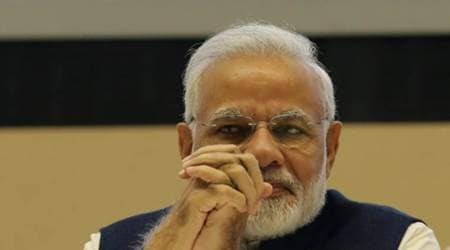 A Gourmet’s Journey: Discovering the Exotic and Erotic in Food
A Gourmet’s Journey: Discovering the Exotic and Erotic in Food
The only yarn spun around textile art historian Jasleen Dhamija’s stint in the kitchen was of the time she set her mother’s kitchen ablaze. Unsurprisingly then, she had to counter tepid attitudes at the launch of her first cookbook, The Joys of Vegetarian Cooking (Penguin, 2000). “I decided to make it a demonstration instead of just a book launch. People came, some to support me, others to mock at me,” Dhamija says, seated at the dining table of her tony apartment in Delhi. The book was written soon after she returned to India at the end of her career with the United Nations, at the advice of her naturopath, who had put her on a strict vegetarian diet as she had not been keeping well. “Over the course of my treatment, he and I became friends and I asked him to taste some of the food I had been rustling up with the most horrendous vegetables he had prescribed. He insisted that I put the recipes down in one place for he believed that if one eats well, one won’t need medicines,” she says. Three years after the first book, on her friends’ cajoling, she decided to pen down her non-vegetarian recipes in Cooking for All Seasons (Penguin, 2003). “The book went out of print but people kept asking me for the recipes. So, I decided to put them together once again,” she says.
Leading on from her second book, A Gourmet’s Journey: Discovering the Exotic and Erotic in Food (Women Unlimited, 2018), Dhamija intersperses old recipes with new ones, with a healthy garnish of anecdotes about those she shared her food with.
Born in Abbottabad in 1933, she reminisces the arrival of her Afghan neighbours, who brought on their mules, fruits from their long trek. They also brought the medicinal resin, shilajit, found abundantly in Central Asia. “I learned later that it was considered to be an aphrodisiac,” she writes in the book which details several edibles considered stimulants, most startling of them being the stout pigeon.
 Jasleen Dhamija, the author of A Gourmet’s Journey: Discovering the Exotic and Erotic in Food
Jasleen Dhamija, the author of A Gourmet’s Journey: Discovering the Exotic and Erotic in Food
It was the journey she undertook on the Grand Trunk Express with her school friend, Sunanda Surkund, in 1944 that introduced her to hitherto alien cuisines. As they travelled the length of the country, they devoured the diverse offerings of each state they passed. But it was only during her travels with her mentor, culture and craft revivalist, Kamaladevi Chattopadhyay, that she learned that “food reflects the culture of people”. “Generally, people are not open-minded about food and prefer to stick to their own cuisine. When I started travelling with her at the age of 21, I found her willingness to try new things very inspiring. Though she was a strict vegetarian, she often asked her friends to make non-vegetarian food for me. This makes me think that she might have known the taste of different meats. I think she may have become vegetarian because her mother and grandmother were widows. And she was a widow too. That’s actually why they brought her to Chennai from Mangalore, to protect her from discrimination. At the home of three widows, the kitchen, at that time, had to be vegetarian,” she explains.
In the book, she writes about discovering the difference between wazwan and the food of the pandits in Kashmir, the Kshatriya food considered to be of the rajas that aroused the senses, the cuisine of the East Bengal Hindus she deems the finest, the elaborate bhog she tasted at the Vaishnav temple in Imphal and the Brahmin cooks who covered their faces while preparing it. “The first essence of the food is encountered in the aroma. If you partake in the smell, you have partaken of the essence and the food was then no longer considered fit to offer to the Gods,” she says. As she acquainted herself with the varied tastes of the nation, “no one openly talked of erotic cuisine” and it was only in Iran that she learned of the “enormous range of foods and different styles of presentation, including the seductive”.
The book is also peppered with tales of tender flirtations with her many admirers — an Italian filmmaker, an Egyptian exiled Copt, even a Prince — that she writes of maintaining a fine balance between spontaneity and discretion. “Many of my male friends cooked and would woo me with their skills in the kitchen. I was just writing about my journey with food and in that journey these men surfaced,” she says, with a laugh. She writes of discovering the nuances of different cuisines with these men, of the thrills of being pursued, while sharing the recipes she learned and improvised while travelling the world. After all, what is food if not partaken with fondness.
For all the latest Lifestyle News, download Indian Express App

































